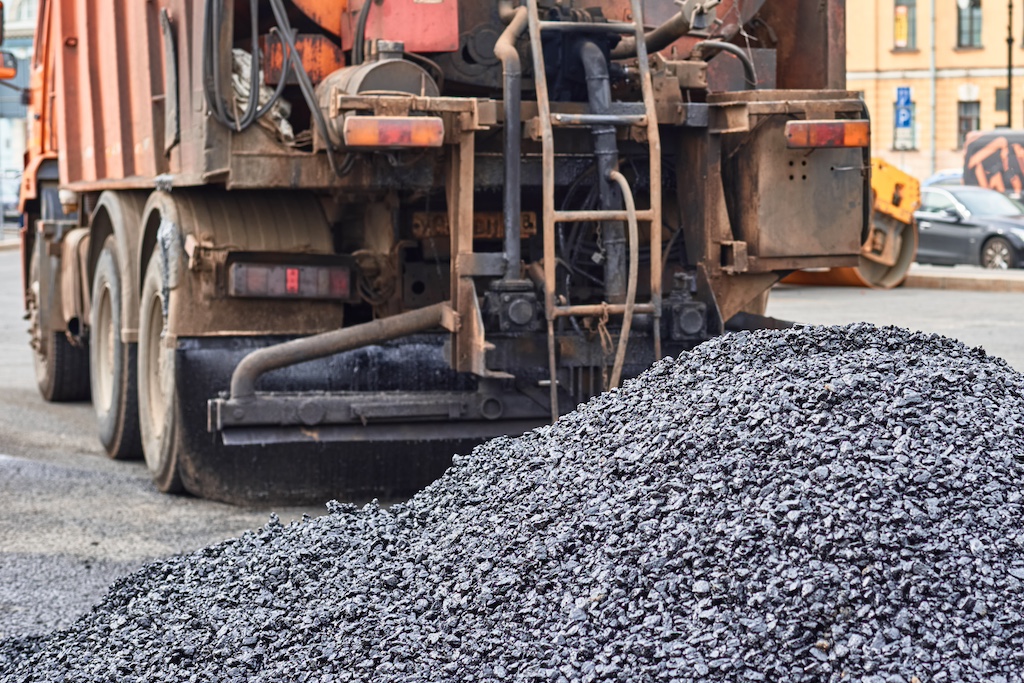In construction and industrial operations, asphalt buildup is a common challenge. From heavy machinery to tools used at project sites, sticky and hardened asphalt residues can cause serious problems if not addressed properly. These deposits may reduce performance, damage equipment, and increase maintenance costs over time. This is why asphalt remover has become an essential product across industries.
This article will explain what asphalt remover is and how it affects equipment, its applications in industries and project sites, and why its use is considered a cost-efficient maintenance solution.
What is an Asphalt Remover? Its Effects on Industrial Equipment and Machinery
An asphalt remover is a specially formulated cleaning solution designed to break down and dissolve asphalt, tar, and bitumen residues that stick to surfaces. Unlike ordinary cleaners, asphalt removers are tailored to target the thick, sticky, and highly adhesive properties of asphalt.
If asphalt is not removed properly, it can have damaging effects on equipment and machinery, such as:
- Reduced performance: Residue buildup can interfere with moving parts and slow down operations.
- Corrosion and wear: Chemicals in asphalt can accelerate rusting and deterioration of metal components.
- Shortened lifespan of tools and machinery: Continuous exposure to asphalt without proper cleaning leads to costly repairs or early replacement.
By effectively breaking down these residues, asphalt remover helps extend the life and reliability of industrial machinery.
Applications of Asphalt Remover in Construction, Project Sites, and Industries
The versatility of asphalt remover makes it a must-have in multiple sectors:
Construction Sites
Construction equipment such as pavers, rollers, dump trucks, and asphalt plants are constantly exposed to hot, sticky asphalt. Using asphalt remover ensures these machines remain clean, functional, and efficient, preventing downtime during critical projects.
Industrial Use
Factories and industrial facilities that deal with bitumen-based products rely on asphalt remover to keep their production tools in good condition. It ensures that production lines are not slowed down by sticky deposits that are difficult to clean with regular solutions.
Project Sites
From roads and highways to airport runways, project sites often involve large-scale asphalt use. Cleaning equipment with asphalt remover helps teams maintain schedules, keep costs under control, and ensure safe operations.

More Efficient Use of Asphalt Remover: Reducing Equipment Service Costs
One of the key advantages of using asphalt remover is cost efficiency. Proper and regular cleaning minimizes the need for extensive servicing, which can be expensive and time-consuming.
Benefits of Asphalt Remover in Cost Efficiency
- Easier maintenance: Dissolving asphalt residues allows workers to clean machinery faster and more effectively.
- Cheaper servicing: Preventing asphalt buildup reduces the likelihood of mechanical failures that require costly repairs.
- Prolonged equipment life: By preventing corrosion and damage, asphalt remover extends the operational lifespan of machinery and tools.
In industries where heavy machinery is a major investment, the cost savings generated by the asphalt remover can be significant. It is not only a cleaning solution but also a long-term asset protection strategy.
Asphalt remover plays a vital role in ensuring the smooth operation of industries and construction projects. Removing stubborn asphalt deposits protects machinery, improves efficiency, and reduces long-term maintenance costs. Its wide application across project sites, construction sectors, and industrial operations highlights its importance as more than just a cleaner—it is a critical tool for sustainable and cost-effective operations.
For companies seeking efficiency and reliability, investing in asphalt remover is a step toward better maintenance practices, reduced operational costs, and improved project performance.
Read other Articles: The Journey of PT Hasgara Cipta Gusana as One of the Pioneer Diesel Exhaust Fluid (DEF) Manufacturing Companies

